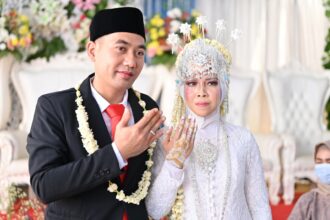As I reflect on my marriage, I can’t help but notice the subtle yet profound changes that crept into our relationship over time. It was a gradual process, almost imperceptible at first, but eventually, I found myself standing at a crossroads, realizing that we were growing apart. The shared laughter and inside jokes that once filled our home began to fade into distant memories.
I remember the moments when we would sit together, lost in our own thoughts, the silence between us growing heavier with each passing day. It was as if we were two ships sailing in parallel, close enough to see each other but never truly connecting. This realization was not an easy pill to swallow.
I often found myself questioning how we had arrived at this point. The vibrant conversations that once flowed effortlessly between us had dwindled to mere exchanges of pleasantries. I began to feel like a stranger in my own home, longing for the intimacy we once shared.
It was a painful awakening, one that left me grappling with feelings of loss and confusion. How could two people who once felt so deeply connected drift so far apart? The answer was not simple, but it was clear that something fundamental had shifted in our relationship.
Key Takeaways
- Growing apart is a common realization in marriages, often leading to communication breakdown.
- Constant arguments and conflicts can result from the loss of emotional connection and lead to feelings of loneliness and isolation.
- Lack of trust and betrayal can further exacerbate the situation, especially when priorities and goals differ.
- Seeking emotional fulfillment outside the marriage may be a sign of the unwillingness to work on the relationship.
- Acceptance of the end of the marriage is a crucial step towards moving forward and finding closure.
Communication breakdown
As I delved deeper into the reasons behind our growing distance, I recognized a significant breakdown in communication. It was as if we had both retreated into our own worlds, speaking different languages without even realizing it. Conversations that once flowed freely became stilted and awkward.
I often found myself hesitating to share my thoughts and feelings, fearing they would be met with indifference or misunderstanding. This fear only exacerbated the distance between us, creating a cycle of silence that felt increasingly suffocating. I remember specific instances where I tried to express my concerns, only to be met with dismissive responses or a lack of engagement.
It was disheartening to feel that my words were falling on deaf ears. The more I tried to reach out, the more I felt like I was pushing him away. Our inability to communicate effectively became a barrier that seemed insurmountable.
I longed for open and honest discussions, but instead, we found ourselves trapped in a cycle of misunderstandings and unspoken grievances.
Constant arguments and conflicts

As communication faltered, it seemed that every interaction between us became charged with tension. What once were minor disagreements escalated into full-blown arguments, often over trivial matters that seemed insignificant in hindsight. I found myself feeling frustrated and hurt, questioning why we could no longer navigate our differences with grace and understanding.
The constant bickering drained me emotionally, leaving me feeling exhausted and defeated. I vividly recall nights spent arguing over the smallest issues—who left the dishes in the sink or forgot to take out the trash. These conflicts felt like a manifestation of deeper issues that we were both unwilling to confront.
Instead of addressing the root causes of our discontent, we became entangled in a web of blame and resentment. Each argument left scars on our relationship, further deepening the chasm between us. It was as if we were caught in a storm, unable to find shelter from the chaos that surrounded us.
Loss of emotional connection
| Factors | Metrics |
|---|---|
| Relationship Duration | Years together |
| Communication Frequency | Number of conversations per week |
| Quality Time | Hours spent together |
| Physical Intimacy | Frequency of physical affection |
| Emotional Support | Perceived level of emotional support |
With each passing day, I felt the emotional connection we once shared slipping further away. The warmth and affection that had characterized our relationship were replaced by a cold distance that left me feeling hollow inside. I missed the days when we would share our dreams and fears, when vulnerability was met with compassion rather than indifference.
Now, it felt as though we were merely cohabiting rather than truly living as partners. I often found myself reminiscing about the early days of our relationship—the late-night talks, the spontaneous adventures, and the deep sense of understanding we had for one another. Those moments seemed like a distant dream as I grappled with the reality of our emotional disconnect.
I yearned for intimacy and closeness but felt increasingly isolated in my own feelings. The loss of that emotional bond was perhaps one of the most painful aspects of our unraveling marriage.
Feeling of loneliness and isolation
As the emotional connection faded, I began to experience an overwhelming sense of loneliness and isolation within my marriage. Despite sharing a home and life together, I felt more alone than ever before. It was a paradox that left me feeling trapped—surrounded by someone yet feeling utterly disconnected from them.
I often found myself questioning whether anyone could truly understand the depth of my loneliness. In those quiet moments when I sat alone with my thoughts, I realized how deeply this isolation affected my well-being. I craved companionship and support but felt as though I was shouting into a void.
The loneliness seeped into every aspect of my life, making it difficult to find joy in activities that once brought me happiness. It was a heavy burden to carry, one that made me question not only my marriage but also my sense of self-worth.
Lack of trust and betrayal

As time went on, the lack of trust became another significant hurdle in our relationship. Trust is the foundation upon which any partnership is built, and without it, everything else crumbles. I began to notice small inconsistencies in his words and actions that raised red flags in my mind.
Doubts crept in like unwelcome guests, making me question his loyalty and commitment to our marriage. The feeling of betrayal was particularly painful when I discovered secrets he had kept from me—small lies that seemed harmless at first but ultimately eroded my trust in him. Each revelation felt like a dagger to my heart, deepening my sense of betrayal and leaving me feeling vulnerable and exposed.
It became increasingly difficult to reconcile the person I thought I knew with the reality of his actions. The lack of trust created an insurmountable barrier between us, making it nearly impossible to rebuild what had been lost.
Different priorities and goals
As we navigated through these tumultuous waters, it became evident that our priorities and goals had diverged significantly over time. What once united us now seemed to pull us apart as we pursued different paths in life. I found myself yearning for stability and growth within our relationship, while he appeared more focused on personal ambitions that didn’t align with our shared vision for the future.
This divergence in priorities led to feelings of frustration and resentment on both sides. I often felt like I was fighting for a future we had once envisioned together while he seemed content to forge his own path without considering how it impacted us as a couple. The disconnect between our aspirations created an emotional rift that felt increasingly difficult to bridge.
It was disheartening to realize that what had once been a shared journey had transformed into two separate paths heading in opposite directions.
Seeking emotional fulfillment outside the marriage
In my quest for emotional fulfillment amidst the turmoil of my marriage, I found myself seeking solace outside our relationship. It wasn’t something I had planned or anticipated; rather, it was a natural response to the growing void within my marriage. Conversations with friends took on new significance as they provided an outlet for my feelings—an opportunity to share my struggles without fear of judgment or dismissal.
I began to confide in those who understood my plight, finding comfort in their empathy and support. While these connections were not romantic in nature, they filled a void that had been left unaddressed within my marriage. However, this pursuit for emotional fulfillment outside our relationship also brought about feelings of guilt and confusion.
I grappled with the realization that seeking solace elsewhere was a sign of deeper issues within my marriage—issues that needed to be confronted rather than avoided.
Unwillingness to work on the relationship
Despite recognizing the myriad challenges we faced, there came a point where it became clear that there was an unwillingness on both sides to actively work on our relationship. It was as if we had both resigned ourselves to the idea that things would never change—that we were stuck in this cycle of discontent without any hope for resolution. This stagnation only deepened my sense of despair as I longed for change but felt powerless to initiate it.
I often found myself reflecting on what it would take for us to rekindle the spark we once shared. Yet every attempt at initiating conversations about our struggles was met with resistance or apathy. It became increasingly evident that without mutual commitment and effort, our marriage would continue down its destructive path.
The unwillingness to confront our issues head-on left me feeling trapped in a situation where hope seemed elusive.
Acceptance of the end of the marriage
Eventually, after much soul-searching and reflection, I reached a point of acceptance regarding the end of my marriage. It wasn’t an easy conclusion to come to; rather, it was born out of countless sleepless nights spent wrestling with my emotions and contemplating what lay ahead. Accepting that our journey together had come to an end felt like both a relief and a profound loss—a bittersweet acknowledgment of what once was.
Acceptance didn’t mean giving up; instead, it meant recognizing that sometimes love isn’t enough to sustain a partnership when fundamental differences exist. As painful as it was to let go of the dreams we had built together, I understood that embracing this new chapter would ultimately allow both of us to find healing and growth.
Moving forward and finding closure
As I began to navigate life after my marriage, I focused on finding closure—a crucial step toward healing and moving forward. This process involved reflecting on the lessons learned from my experiences while also acknowledging the pain associated with letting go. I sought therapy as a means of processing my emotions and gaining clarity about what I wanted for my future.
By embracing my feelings—both the joy and sorrow—I began to reclaim my sense of self outside the confines of my marriage. Moving forward meant allowing myself to envision new possibilities while cherishing the memories of what once was without letting them define me.
Ultimately, this journey taught me invaluable lessons about love, resilience, and the importance of prioritizing one’s own well-being. While the end of my marriage marked a significant chapter in my life, it also opened doors to new beginnings—opportunities for growth and self-discovery that lay ahead on this uncharted path.
In the journey of understanding when a marriage reaches its breaking point, many individuals find solace in shared experiences and stories. One such narrative is explored in the article “The Moment I Knew My Marriage Was Over,” which delves into the subtle signs and pivotal moments that lead to the realization of a relationship’s end. For those seeking further insights and personal accounts, a related article can be found on the same platform. This piece, available at Ami Wrong Here, offers a broader perspective on relationship dynamics and the emotional complexities involved in recognizing when it’s time to move on.
THIS IS CRAZY! Wife Demanded Cash From Me For Her Ex; So I Sold Her Car For Cash
FAQs
What are some common signs that a marriage may be over?
Some common signs that a marriage may be over include lack of communication, constant arguing, feeling disconnected from your partner, and lack of intimacy.
What are some emotional indicators that a marriage may be over?
Emotional indicators that a marriage may be over can include feeling unhappy or unfulfilled in the relationship, feeling a lack of love or affection from your partner, and feeling like you have grown apart.
What are some practical steps to take if you feel your marriage may be over?
Practical steps to take if you feel your marriage may be over include seeking counseling or therapy, discussing your feelings with your partner, and considering the possibility of separation or divorce.
How can one prepare for the end of a marriage?
One can prepare for the end of a marriage by seeking legal advice, organizing financial documents, and creating a support network of friends and family. It is also important to take care of your emotional well-being during this difficult time.




